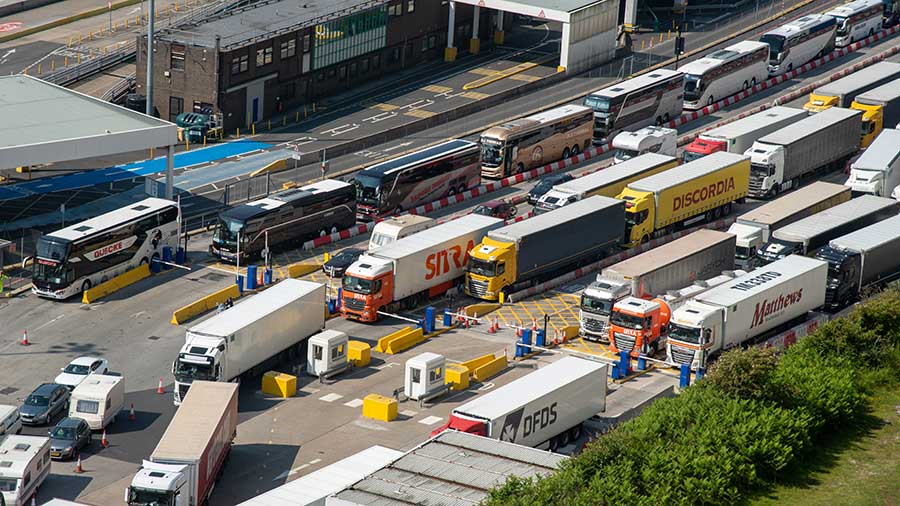Farmer relief as border controls on imports from EU begin
 © Michaelis Palis/Adobe Stock
© Michaelis Palis/Adobe Stock Farm leaders have expressed their relief that new import controls on food have started to take effect, four years to the day after the UK officially left the EU, bringing greater fairness to cross-border trade.
The government’s Border Target Operating Model is being introduced in three stages, with the first being a requirement for Export Health Certificates (EHCs) on “medium risk” meat and dairy consignments, signed by an EU vet to confirm they have come from disease-free animals.
See also: New border controls to disrupt meat supplies, warn traders
There is also now a requirement to pre-notify GB customs of any impending shipment at least 24 hours before arrival, and from the end of April, such imports may be subject to physical inspections at a Border Control Post.
For the past three years, UK food exports have required such paperwork on shipments to the EU, but there have been no equivalent checks on goods coming the other way.
This has prompted claims of unfairness, as well as raising fears that UK domestic agriculture has been put at an extra disease risk.
Relief
Commenting on the new arrangements, NFU president Minette Batters said: “Domestic producers work under stringent UK regulations to guarantee the safety of our food, so it is a relief that these checks will finally be in place from April after years of delays.
“Livestock businesses must feel confident that border checks and controls safeguard the nation’s biosecurity and food safety, and that sufficient resource is dedicated to stamping out fraud and illegal activity where that exists.”
Neil Shand, chief executive of the National Beef Association, also welcomed the developments, but said it had taken “far too long”, with five previous postponements to UK border controls.
“British exporters have had to jump through so many hoops post-Brexit, yet their EU competitors have enjoyed free movement since January 2021. It is good that they will now be audited properly.”
Disruption
Not everyone is satisfied, however. Meat traders are warning of possible disruption to supplies into the UK, as EU operators struggle to get to grips with the new requirements.
The British Meat Processors Association has warned there is a lack of veterinary capacity in many EU exporting countries to sign the EHCs.
Also, since Brexit, the UK’s EHCs are worded differently and no longer match EU legislation exactly, which may make EU vets reluctant to sign them.
Fresh produce importers have also been dismayed by a last-minute reclassification of certain fruit and vegetables to “medium risk”, which means they too will require pre-notification and phytosanitary certificates before shipment.
Even though these new rules will not take effect until 31 October 2024, Nigel Jenney, the Fresh Produce Consortium’s chief executive, described the unexpected change as a “severe blow to the industry”.
Efra committee concerns
The cross-party Environment, Food and Rural Affairs (Efra) committee has expressed its “deep concern” to Defra about impending changes to the inspection of food coming into the UK via Dover, which could jeopardise food safety.
A letter to Defra secretary Steve Barclay sets out two overriding concerns.
The first is reports of impending budget cuts (of 70%) for spot checks on cars and vans which may be smuggling in illegal meat.
This is despite the fact 60t of illegal pork has been seized since checks began in 2022.
The second concern is that actual inspections of commercial imports of meat will take place at a new Border Control Post at Sevington, 22 miles inland from Dover, a journey that presents “serious biosecurity risks” if drivers offload their cargoes beforehand, or bypass the checks altogether.
The letter asks for a Defra response by 16 February.
